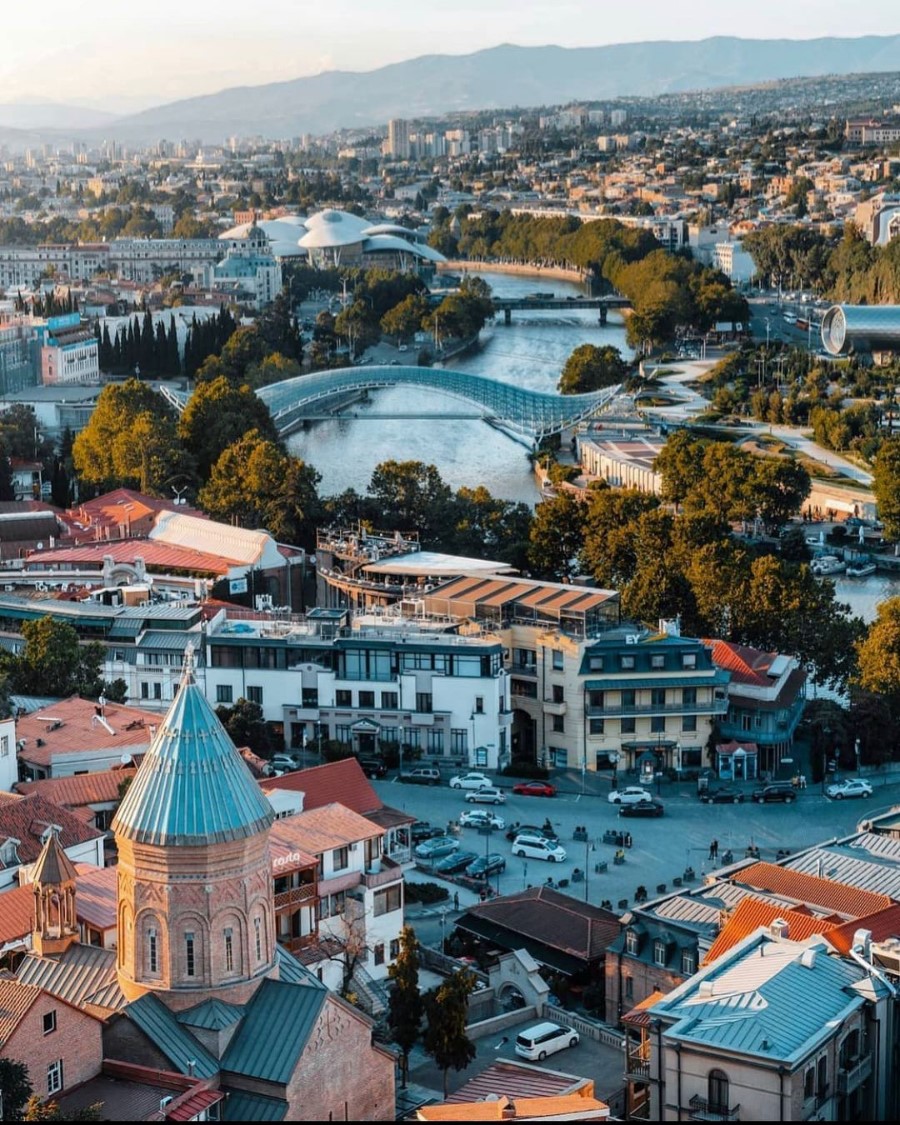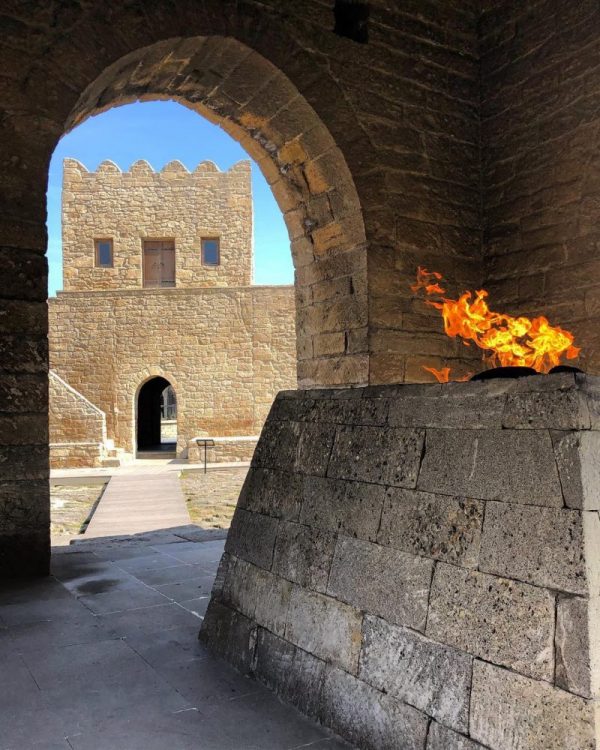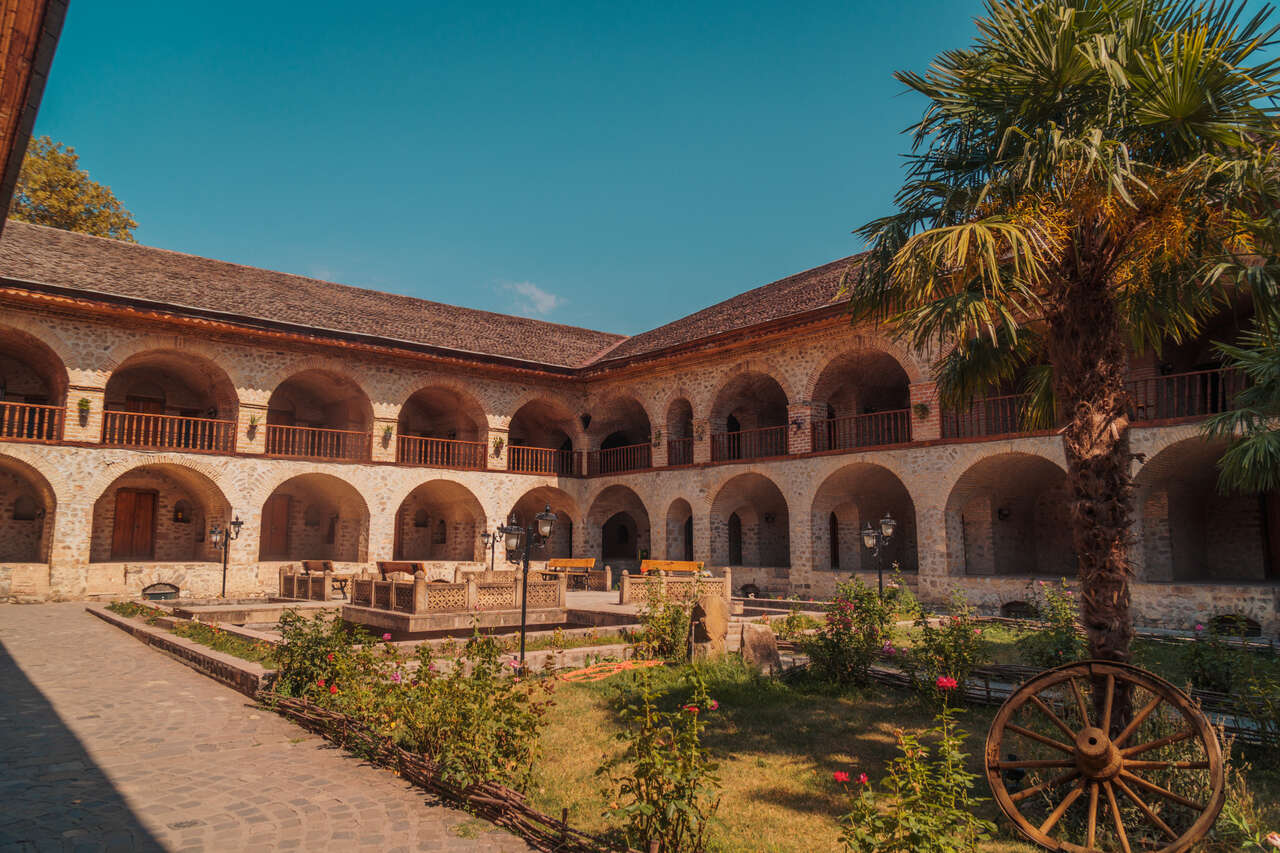CAUCASUS : GEORGIA -ARMENIA- AZERBAIJAN
CAUCASUS
Duration
12 Days
11 nights
Season
summer/
AUTUMN
Concept
aDVENTUROUS
Is this trip
for me ?
Small Group
Adventurous
Private Transport
Nature Lover
History & Culture
Want to join us?
What's included?
Apartment & Cottage House
Intercity Flight
Overnight Sleep Train Ride
Public Transport
(Metro & Bus)
Visa for all countries
Malaysian Trip Leader
What's not included ?
Return flight ticket
Entry Fee
Meals
Private tour + Local Guide
Activities
Itinerary
(Click each day for details)
Tbilisi
Participants arrival day at Tbilisi International Airport – from morning to evening depending on participants flight time. No sightseeing activity on this day. Free & Easy.

On this day, we will explore Kakheti region, located east of Georgia. Kakheti is in fact the most famous wine region of Georgia. However, in this trip we’re focusing more on visiting medieval cultural monuments – the region has about 1500 castles, fortresses, monasteries and churches painted with beautiful frescoes.
Signagi City
Signagi is perhaps Georgia’s single most attractive town, with an amazing position perched on a lofty hilltop facing the snowcapped Caucasus looming in the distance across the vast Alazani valley.
The city is known as the “City of Love” in Georgia, with many couples visiting it just to get married in its picturesque landscapes, pastel houses and narrow, cobblestone streets.
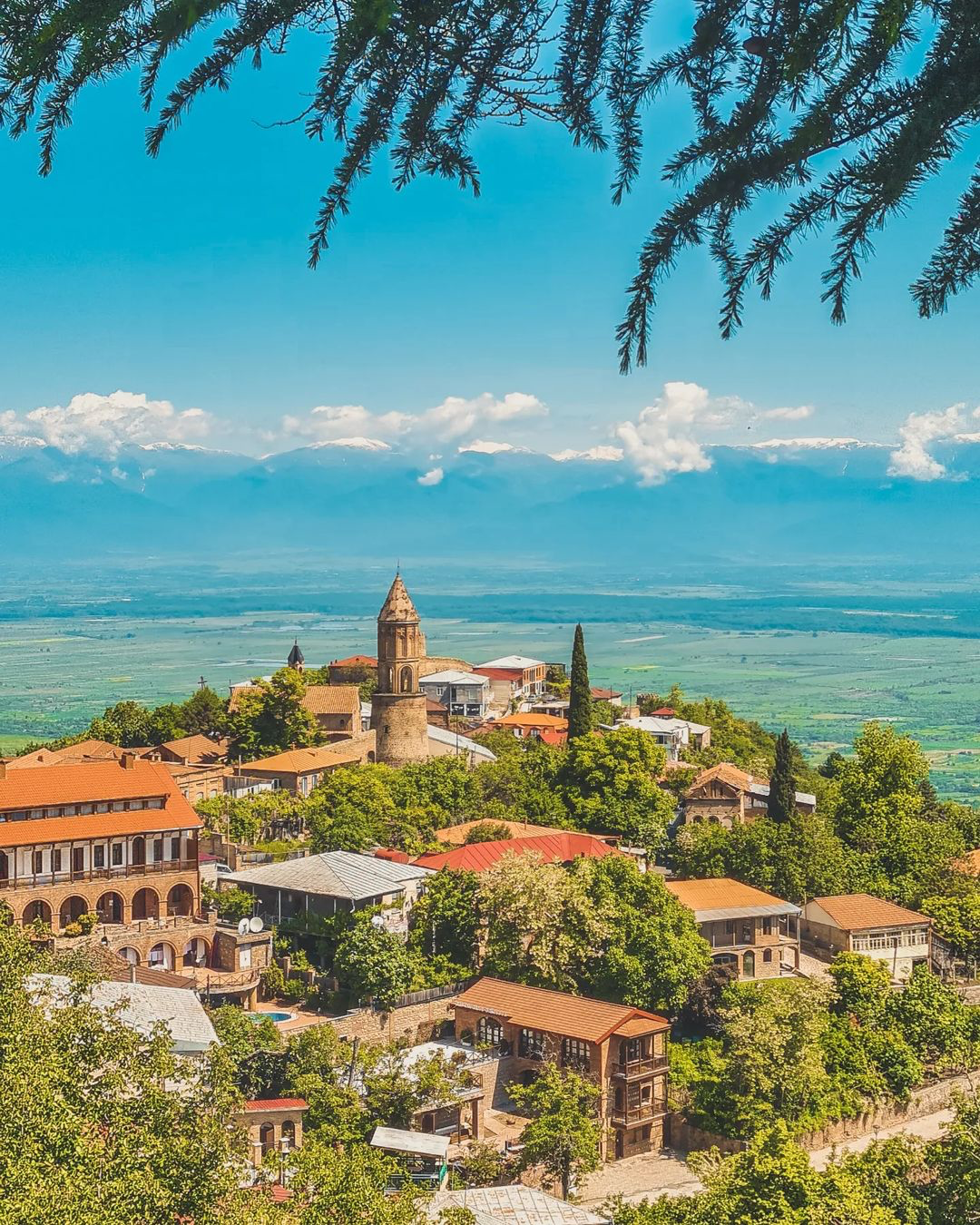
Signagi city view
Bodbe Monastery
Bodbe monastery has a special place in Georgia, because the holy missionary Nino, who converted Georgia to Christianity in the 4th century, is buried here.
Bodbe Monastery enjoyed a special status among Georgian kings and several kings of East Georgia were crowned here.
Besides, for centuries the monastery was an important cultural center of East Georgia with a very rich library
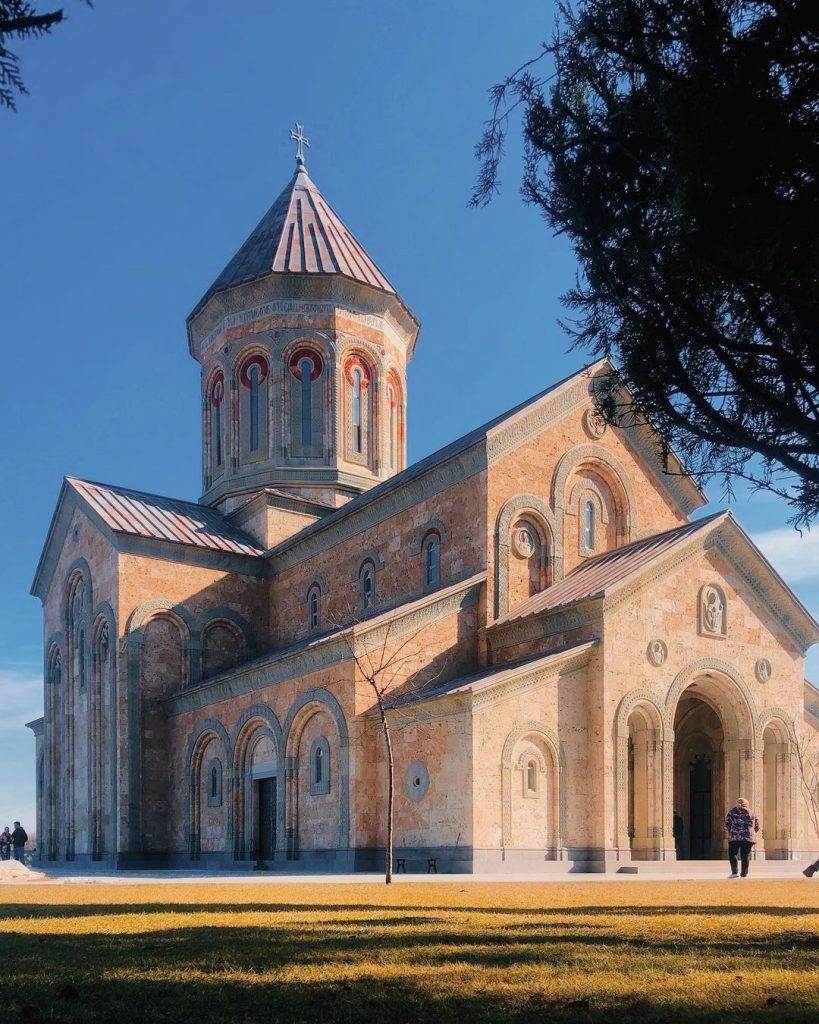
David Gareja
David Gareja is a rock-hewn Georgian Orthodox monastery complex, on the half-desert slopes of Mount Gareja, listed under UNESCO heritage site.
It includes the complex of 19 Medieval monasteries with approximately 5 000 cells for monks. The dozens of cave monasteries decorated with unique frescoes are the best examples of harmonious interaction of man made structures with the dramatic landscape. They bear the traditional principles of sustainable living and are considered as the masterpieces of Georgian Medieval art.

On this day, we will have 3 hours road trip to Kazbegi for Georgia natural beauty surrounded by Caucasus Mountain and one of its peak is Kazbegi – the highest mountain in Europe. On the way, we will have a few stops for sightseeing.
Ananuri Complex
Ananuri is one of the best Georgian medieval castles of the late feudal era of Georgia. This area (village) has been inhabited since ancient times.
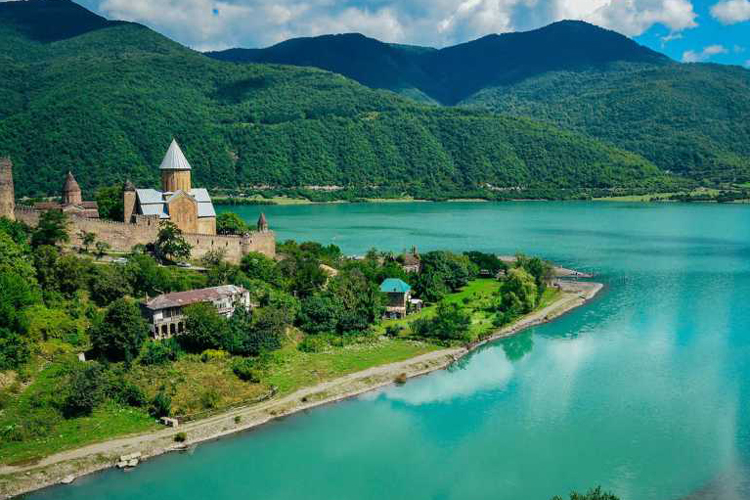
Russia-Georgia Friendship
The Russia–Georgia Friendship Monument was erected by the Soviets in 1983 in the mountains of northern Georgia. The famous Georgian architect Giorgi designed it and placed it on a spot offering a spectacular view over the surrounding landscape.
The massive round “friendship” monument still looks out over Devil’s Valley and the Caucasus Mountains.

Gergeti Trinity Church
14th century Gergeti Trinity Church, otherwise known as Holy Trinity Church, is a small but very picturesque Christian church that is located above the village of Gergeti. This magnificent religious building is sitting below Mount Kazbegi, which is among the highest points of Georgia.
Throughout the centuries, the church was the place where the Georgian Orthodox and Apostolic Church was giving mass to the locals in the area, and in 18 century it was turned into storage for main Georgian relics which were transported during the Persian invasion of Georgia’s capital, Tbilisi

At night we will be sleeping in a cottage lodge house surrounded by Caucasus mountain & view of Kazbegi peak, before return back to Tbilisi city the next day.

On this day, we will drive back to Tbilisi city and have a few detour for sightseeing and activities.
Juta Valley
Juta is an alpine town located in the Mtskheta-Mtianeti region in the northeast of Georgia in the Caucasus Mountains. It is considered the highest inhabited settlement in Georgia together with Ushguli in Upper Svaneti region. This place is also know as the Dolomites of Georgia.
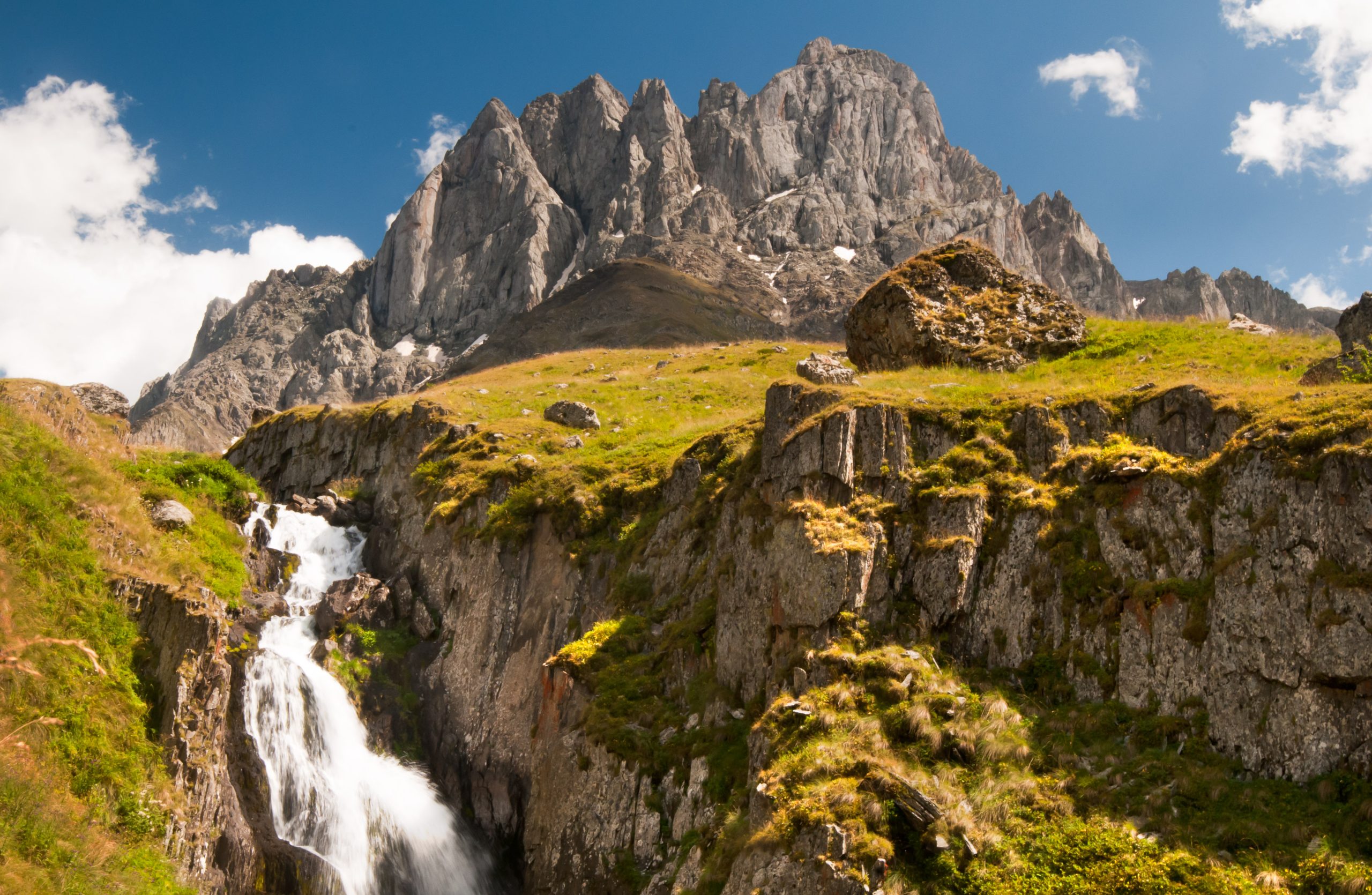
Mtskheta City
It is one of the oldest cities in Georgia as well as one of the oldest continuously inhabited cities in the World. Mtskheta is Georgia’s most sacred pilgrimage city and has been declared a UNESCO World Heritage Site. It is the capital of the ancient eastern Georgian kingdom of Iberia from the 3rd century BC to the 5th century AD

Chronicles of Georgia
Once reach Tbilisi city, be ready to be in awe for this gigantic monument located near Tbilisi sea, which was built in 1985 but unfortunately was never finished. The monument sits at the top of the large sets of stairs, sometimes referred as “The Georgian Stonehenge”. Consist of 16 large columns that reach a height of around 114 feet (35 meters) each.
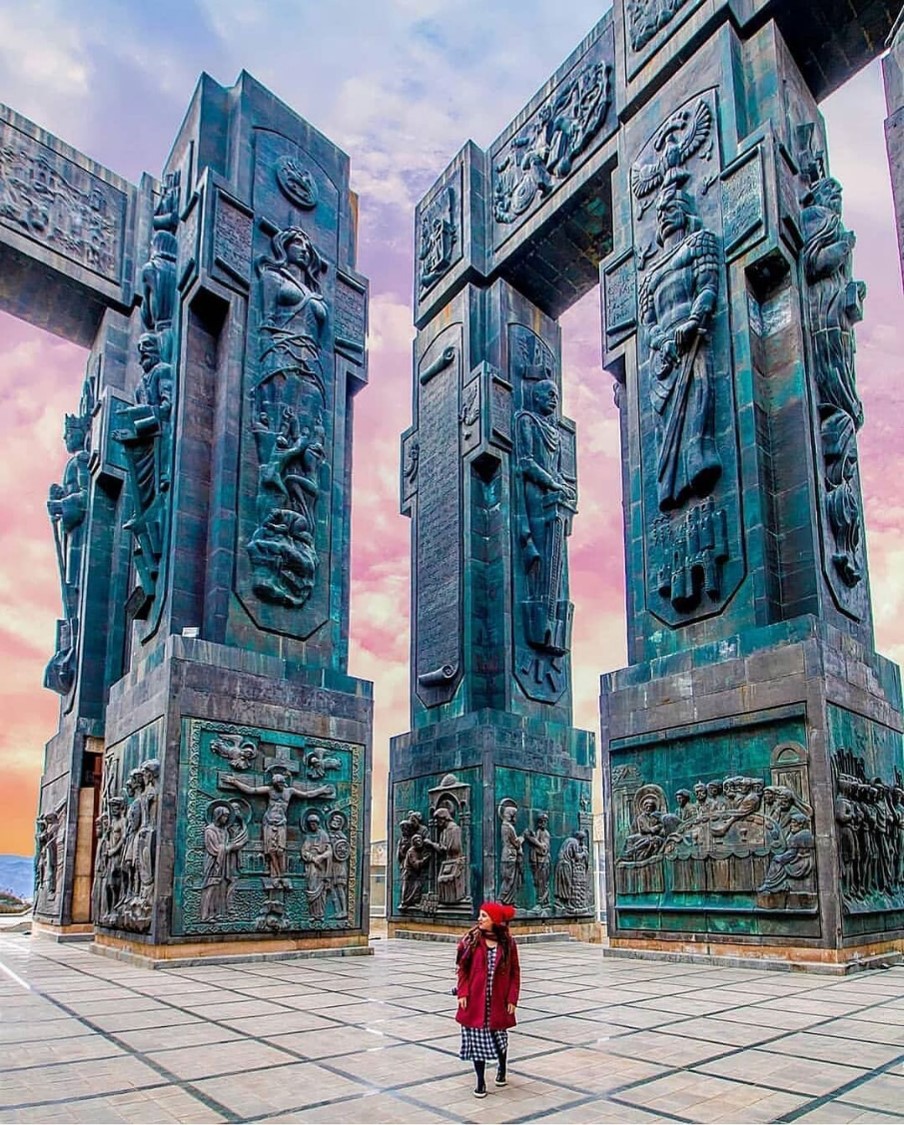
Tbilisi City
In the morning, we will explore some interesting spots in the city by walking.
Bridge of Peace
Rike Park
Narikala Fortress
Tbilisi Mosque
Tbilisi Sulphur Bath
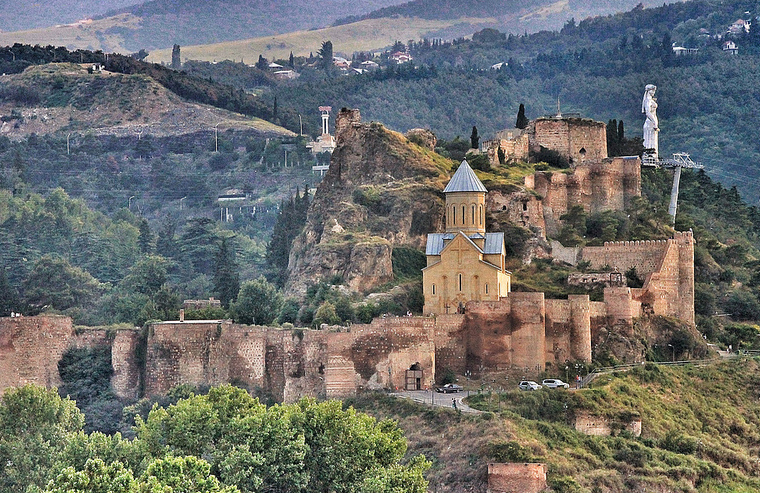
Narikala Fortress
A view of Tbilisi city
In the evening, we will board on soviet classic overnight sleeper train for 10 hours adventure crossing land border to Yerevan city, capital of Armenia. The train is comfortable and safe. Waking up to early morning views of Mount Ararat as we roll into Yerevan is a moment worth adventuring once in a lifetime.
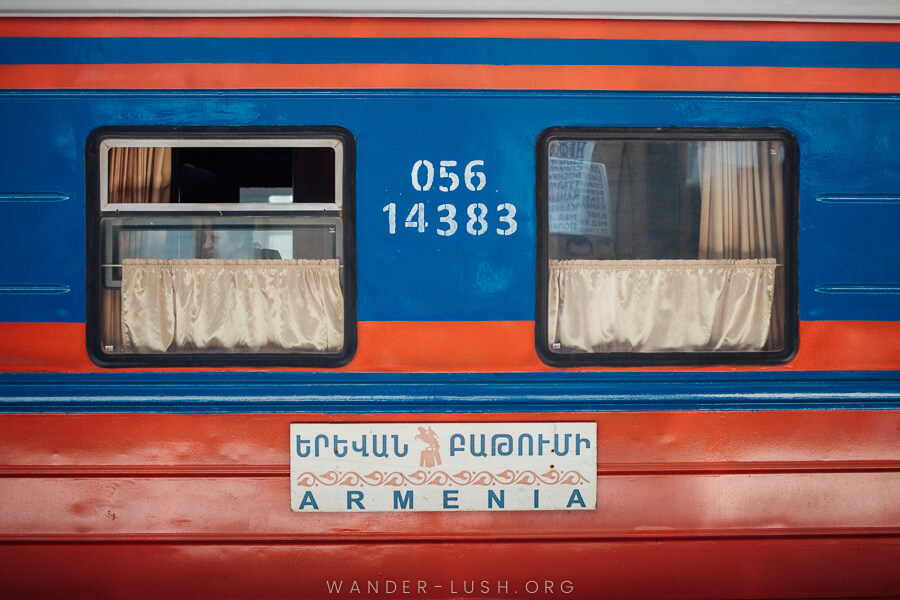
Once reached the pink city of Yerevan in the morning, we will check-in our accommodation & rest.
Yerevan Cascade
In the afternoon, we will visit Yerevan Cascade to see panoramic view of Yerevan cityscape surrounded by Mt. Ararat landscape.
The Cascade is a giant stairway made of limestone in Yerevan. It has 750 steps and built-in escalator if you wish to go up the platform. The building now houses the Cafesjian Center for the Arts of Armenian people.
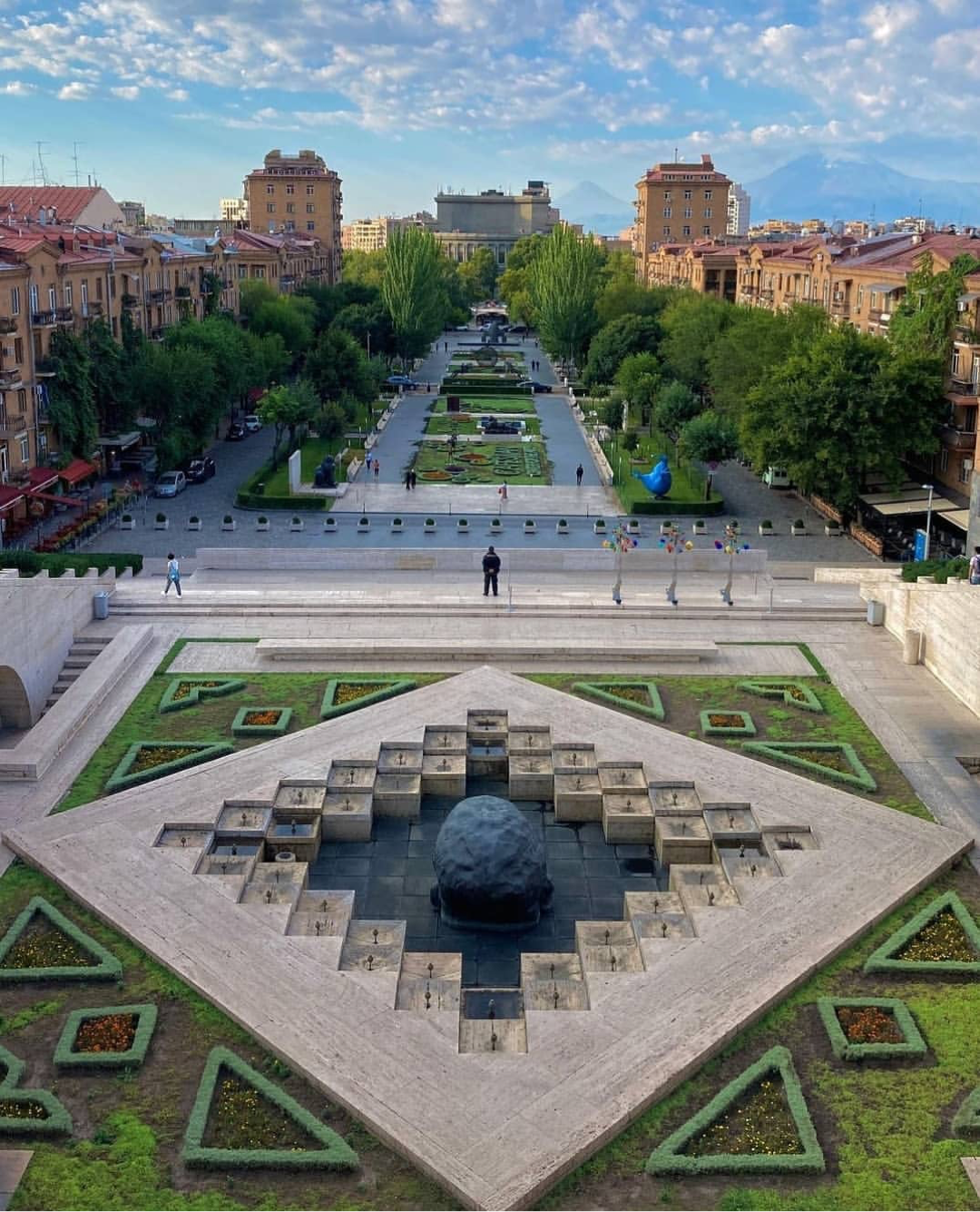
Vernissage Flea Market
At this market, you can find Armenian folk art, fridge magnet, keychain, t-shirts, unique jewelry and exclusive handmade masterpiece craftsmanship. All kinds of souvenirs you would wish to bring home!
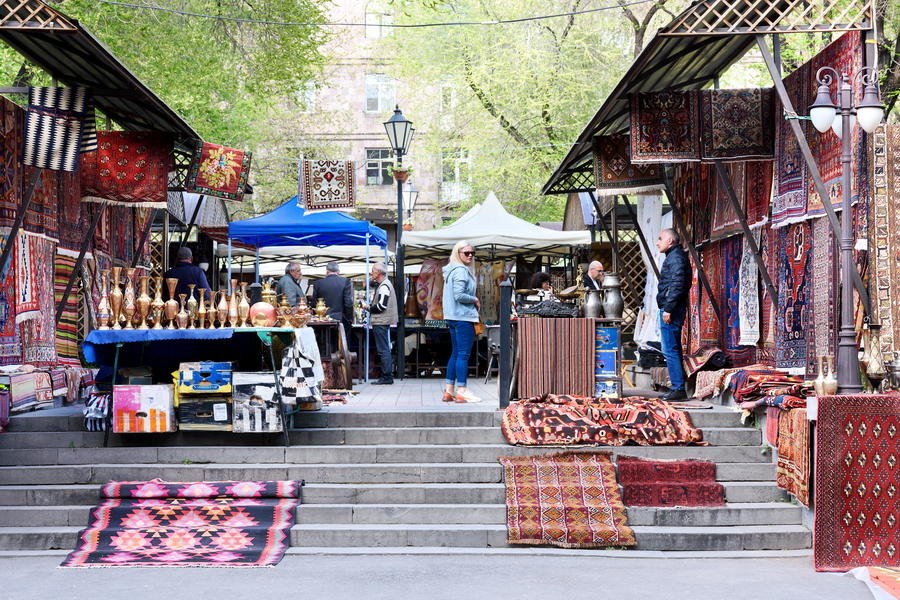
Republic Square
At night is Free & Easy time. You can have a stroll along North Avenue for cafes and shops OR go to Republic Square to watch interesting dancing fountain show.
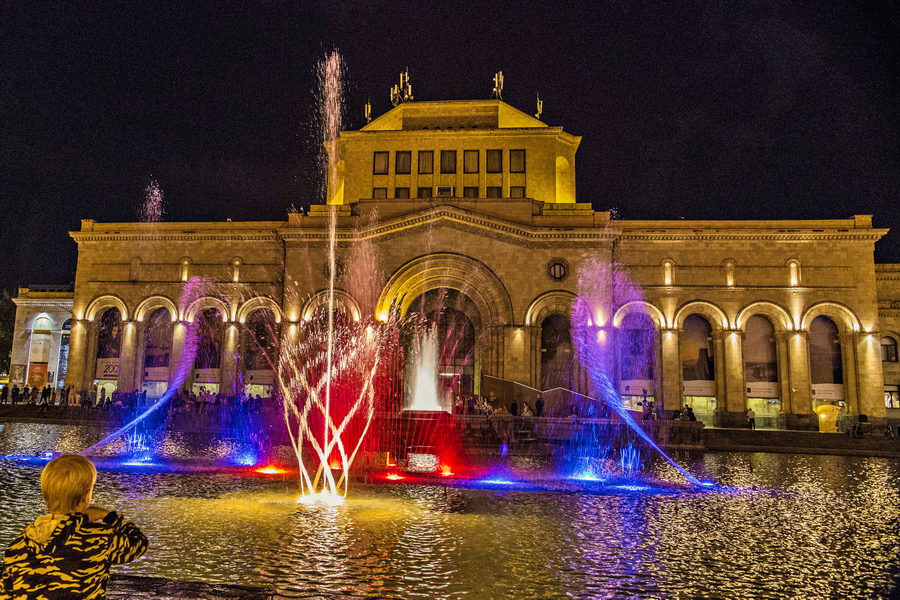
On this day, we will have full day private tour with local guide exploring notable attractions in the outskirts of Yerevan.
The Arch of Charents
It was erected in 1957 and named in honour of one of the most famous Armenian poet Eghishe Charents. They say, Charents loved this place and used to visit it frequently. This place is a must-see as it offers an open landscape to a breathtaking view of Ararat.
On the front side of the arch is carved the lines of one of his most famous poem. It says “Travel the world.. you will never find a crest as pure as Ararat’s. As an impassible road to glory, I love my Masis Mountain”
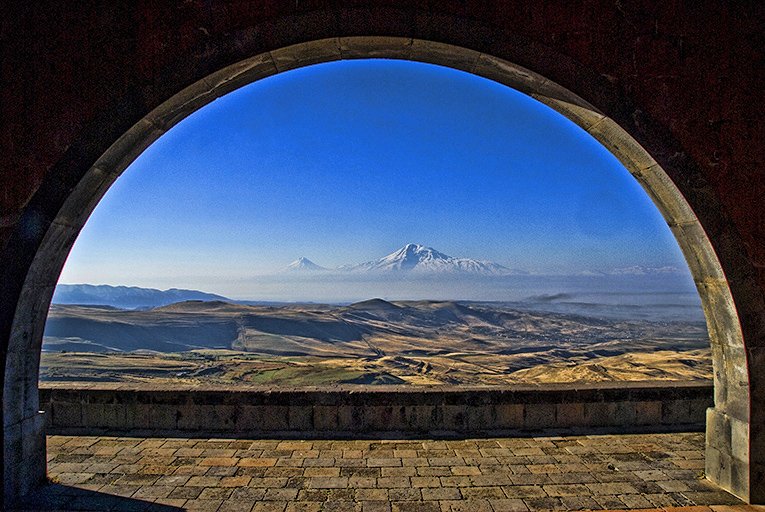
Geghard Monastery
Geghard is a medieval monastery in Armenia. The monastery was built directly out of an adjacent mountain in the 4th century by Gregory the Illuminator. In 2000, Geghard monastery was designated as a UNESCO World Heritage Site.
What sets Geghard monastery apart is that its tombs and churches are cut into the mountain. What’s more, a special relic was once kept here: the sacred spear that pierced Jesus on the cross.
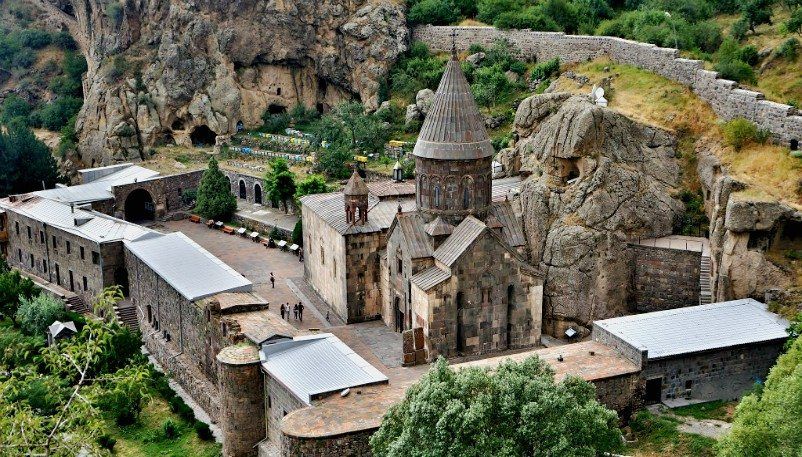
Garni Temple
The temple was dedicated to God Mihr, the Armenian pagan god of light and the Sun.
According to a Greek inscription, it was founded by Tiridates I of Armenia. In 305 when Armenian King Tiridates III adopted Christianity as a state religion, all the pagan places of worship were destroyed. The Temple of Garni is the only pagan Hellenistic and Greco-Roman structure to have survived. Probably it survived because of its widely recognised status of “masterpiece of art”.
The temple is constructed of grey basalt. It is supported by a total of twenty-four 6.54-metre high columns of the Ionic order: six in the front and back and eight on the sides. The 24 columns symbolize the 24 hours.
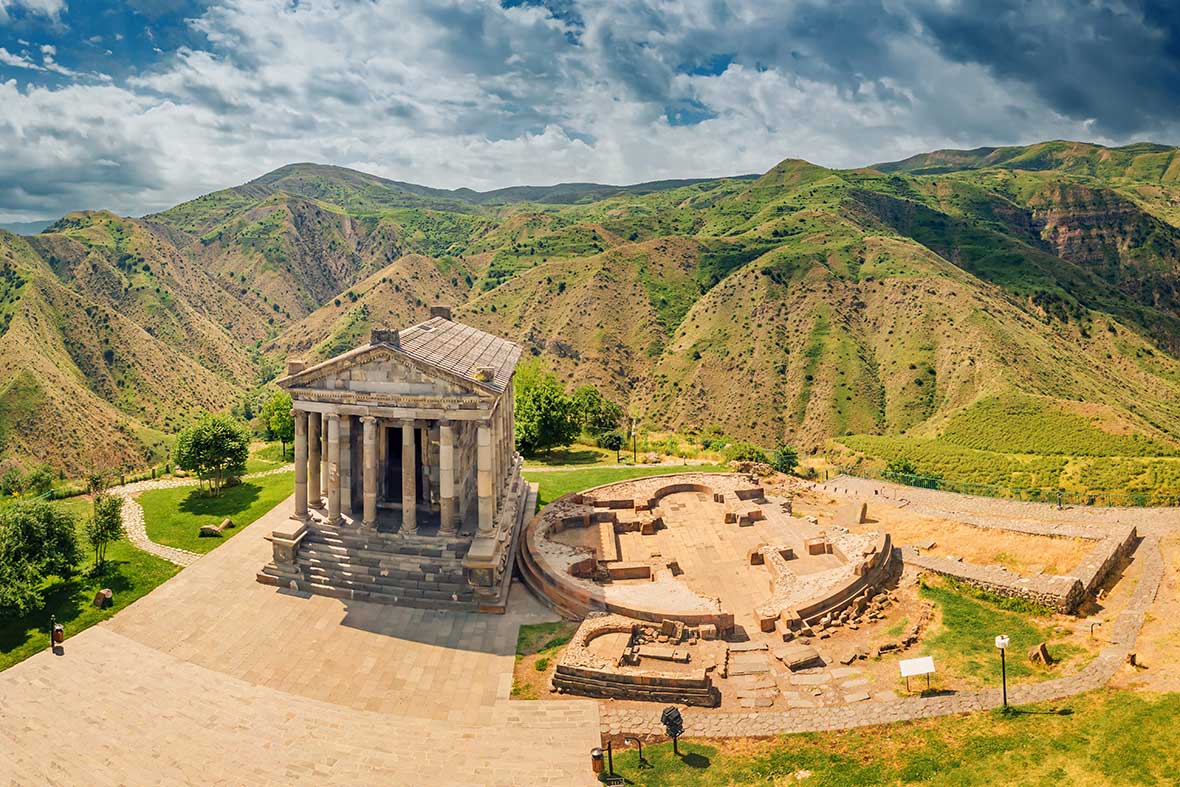
Khor Vrap Monastery
Khor Virap is an Armenian monastery located in the Ararat Plain in Armenia, near the border with Turkey. This fortified monastery is a place of pilgrimage and a holy site for the Armenian Apostolic Church. This place has the most beautiful view of Mount Ararat and entire Ararat Valley from the monastery.
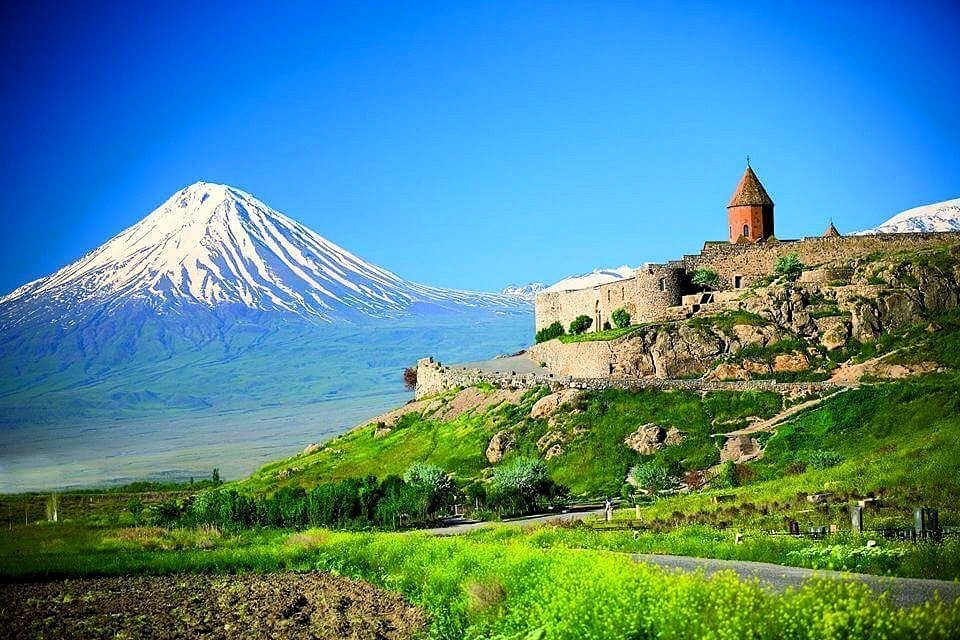
On this day, we will have 4 hours road trip by private minibus crossing border back to Tbilisi city, with a few stops at local RnR place and beautiful Sevan Lake on the way.
We will stop-by at high-altitude Sevan Lake for sight-seeing at monastery Sevanavank.
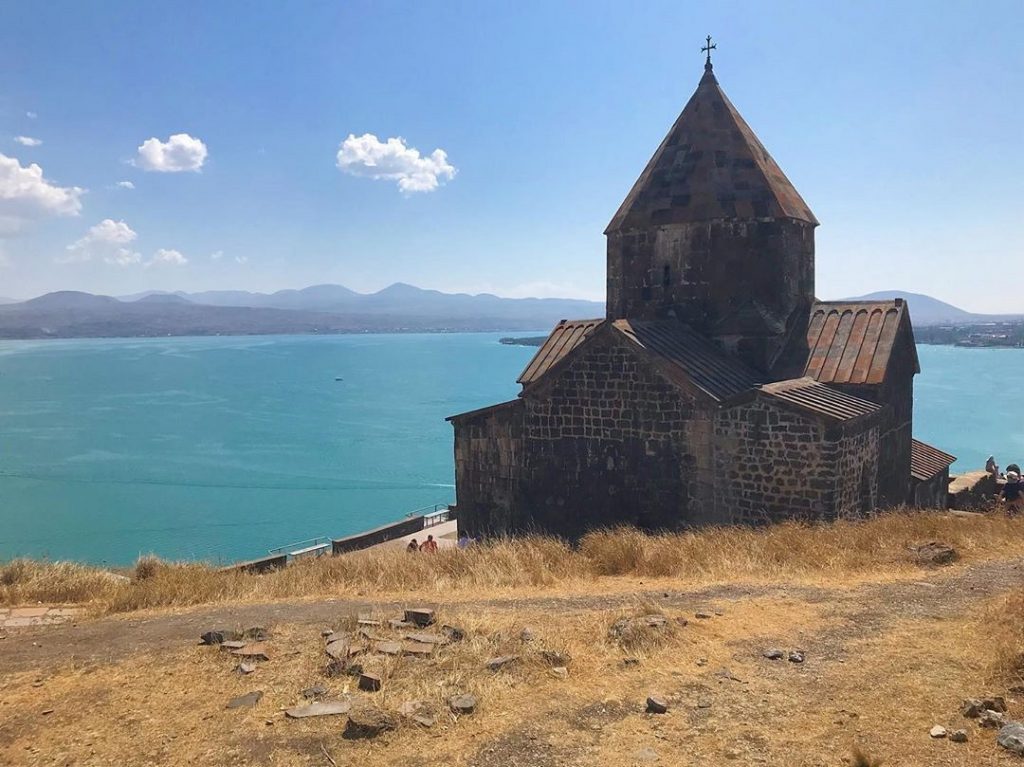
Once reached Tbilisi city, we will have another overnight sleeper train adventure (450km 15hrs) crossing land border to Baku, Azerbaijan.

Once reached Baku city in the morning, we will check-in our accommodation & rest before afternoon casual sightseeing.
Nizami Street Baku Old Town
Baku Boulevard
On this day, we will explore the outskirts of Baku’s capital.
Excursion 30km away to mysterical Ateshgah Fire Temple to learn about Zoroastrian religious belief and culture, Burning Mountain of Yanardag, claimed to be legendary Azerbaijan Natural Gas Reserve.
On our drive back to the city, we will tour city attractions Heyder Aliyev Center the symbol of Baku city and historical Bibi-Heybat Mosque to wrap up our day tour. Overall, this tour will take up around 5 hours.
Baku Old Town
We will end the tour at old town of Icherisheher to visit medieval historic ruling dynasty of Azerbaijan lived in 11-14 centuries by visiting the Shirvanshah’s Palace.
 Old Town Icherisheher
Old Town Icherisheher
 Shirvanshah Palace
Shirvanshah Palace
On this day, we will have full tour to Sheki region, a silk road city in Northwestern Azerbaijan. It is located near Greater Caucasus mountain range, 240 km from Baku. Sheki was famous as a city of craftsmen and merchants.
Juma Mosque at Shamakhi Town
Juma Mosque of Shamakhi is the largest mosque of Azerbaijan. It is one of the first mosques of Azerbaijan after the Arab occupation of Caucasus.

Sheki Khan Palace
The most outstanding and valuable monument from the 18th century in Azerbaijan is the Sheki Khans’ Palace (1752-1762) as the summer residence of Khans.
The uniquely beautiful two-storied palace is richly painted with drawings displaying scenes of hunting and war, as well as intricate geometrical and plant patterns.
In the center is a huge stained-glass window made from multi-colored glass mosaics (up to 5,000 glass pieces were used in each square window).
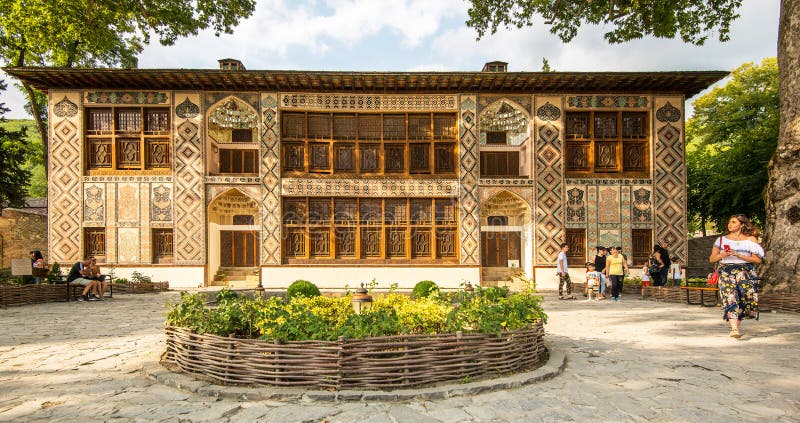
Sheki Caravanserai
Sheki was famous as a city of craftsmen and merchants. Traders from all of the countries along the Silk Road used to gather in Sheki, so great attention was paid to the construction of caravanserais. Through the 18th and 19th centuries, 5 big caravanserais were active in Sheki to house all of the travelers passing through. Only two of them have survived. The Upper and Lower Caravanserais were built in the 18th century. The craftsmen who built these caravanserais tried their best to make them as comfortable as possible, giving plenty of space so that travelers could rest, store their goods, and trade with local residents. The cellars were used for storing goods, the first floor was for trading, and the second floor was where travelers and merchants would stay.
The caravanserais were rather big: the Upper Caravanserai is 6,000 square meters, and the Lower one is 8,000 square meters. Each one had more than 200 rooms. According to traditional design, each caravanserai had two to four entrances, and when the doors closed, the caravanserais turned into fortresses. The Upper Caravanserai has been converted into a hotel, and the Lower one is currently being remodeled.
Albania Temple of Kish
Temple from the period of Caucasian Albania in Sheki Vicinity. Kish is one of the oldest villages in present-day Azerbaijan, and is well-known for a church here, during the period of Caucasian Albania.
The church in Kish is beautiful with its own spare style. The current building dates to about the 12th century, while remains found on the side date back millennia. The masonry building is finely tiled. It has exquisite marquee dome and narrow windows. The inner architecture is typical of a rather small temple and the inner yard holds an ancient cemetery (not more than 50 people). Above one grave, restorers placed a transparent plastic dome that allows visitors to see the skeleton of an unusually tall man (about 2 meters).

In the morning, we will fly from Baku Airport to Tbilisi Airport. Tbilisi airport is where the trip will end.
Baku International Airport
The Heydar Aliyev International Airport terminal in Baku, Azerbaijan is the brainchild of the Turkish architecture studio Autoban. Turkish architecture studio Autoban has designed giant wooden “cocoons” for the interior of the new international terminal.
“The main idea was to make it different from other airports,” Autoban cofounder Seyhan Ozdemir told Dezeen. “While traveling has become a huge part of our lives, we believe as designers it’s our goal to make it as enjoyable as possible for the public by changing the fundamentals of such transportation hubs.”

Trip Price
RM 4,500/pax (Adult)
- Airport transfers
- 1-way flight GYD-TBS (end trip)
- 8 Nights Accommodation (Hostel & Cozy Apartment with Kitchen)
- 1 Night Lodge surrounded by Caucasus Mountains
- 1 Night Overnight Train ride
- Public Transportation/Metro
- All visa required for these countries
- Malaysian Trip Leader
- Trip Guidebook
Exclude:-
- Return Flight KUL-TBS-KUL (RM3000+)
- Hired Private Tour in each cities (Est. RM 200 – 300)
- Entry Fees (Est. RM 100 – 200)
- Meals (Groceries Sharing & Eat Out)
- Activity cost (cable car ride, paragliding etc.)

